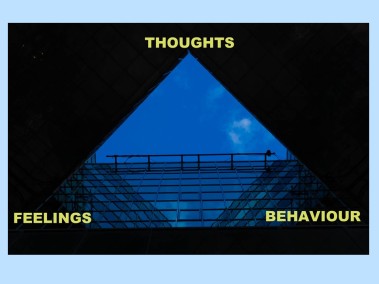Welcome to Understand Yourself Better.
To dive straight in, take a look at the Workshops – a good start would be All About Behaviour.
This is essentially a crash course in personal psychology that has grown out of a series of workshops I run for a local mental health charity. It is a bit rough-and-ready because I wanted to get it up running as soon as possible to help people during this time of unprecedented crisis as we try to cope with the Covid-19 pandemic. I like to think of it as “realistic self-help” – recognising that with the best intentions in the world, we are not very good at putting new ideas into practice to improve our lives. Please consider activating the “Follow Understand Yourself Better” button so you won’t miss any of my amazing (?) new content!
The articles and resources on this website have the common purpose of helping people to develop a better understanding of themselves. Understanding is the first step towards improved self-compassion and change. Please explore and use the resources in ways that seem best for you – not everything will work for everyone.
It is through understanding ourselves better that we are able to identify and put into practice changes that will lead to improvements in our lives. Philosophers down the ages have tried to understand the nature of humanity, looking at issues such as self-knowledge, truth, beliefs and goodness. Psychologists have contributed to the wealth of knowledge we have about how people behave and experience the world around them. The physiological aspects have been investigated by biomedical scientific experts such as neurologists, geneticists and biochemists. There is a lot to know, but in some ways it is as if we know more about the universe than we do about ourselves. I probably know more about how my computer works (in very rudimentary terms!) than I do about how my brain works. Given all these complexities, it is good to have a model…
 A Psychological Model
A Psychological Model
A lot of the content is based on a cognitive behavioural model of human experience. While CBT (Cognitive Behavioural Therapy) is a well-established form of psychotherapy, its underlying principles provide a very useful model (or framework) within which to understand our daily experiences. Primarily, we focus on the interactions between our thoughts, feelings and behaviour. We are then able to use this knowledge to “tweak” the system – for example, changing how a situation makes us feel by changing how we think about the situation.
We “…are disturbed not by things but by the views which [we] take of them.”
[Epictetus, A.D. 55-135]
Motivation, Change and Choices
If we want to make changes in the way we conduct our lives and to make choices that will bring us closer to our goals, then it is important we understand how these processes work. More about this later.
Self-compassion
How often have you set out to make important changes in your life, only to find yourself giving up or returning to your old and familiar ways? If this is true for you, then congratulations! You are officially not a robot. Hopefully, the advice and guidelines you come across here will be realistic and non-prescriptive. What works for me may not work for you. Experiment and adapt. Small changes grow into bigger changes over time. As Winnie-the-Pooh observed…

“Rivers know this: there is no hurry. We shall get there some day.”
Caveat – Health Warning
There are some psychological problems that are too severe or complicated to be amenable to self-help. If you feel this applies to you, then please seek professional help. This is particularly the case if you feel in danger of wanting to harm yourself or others.